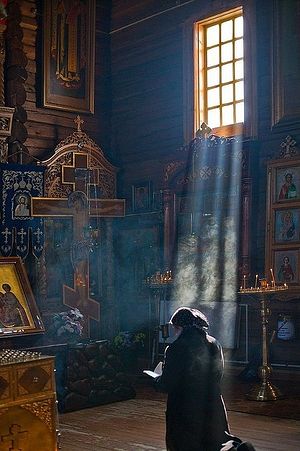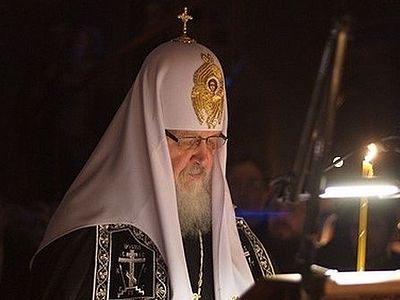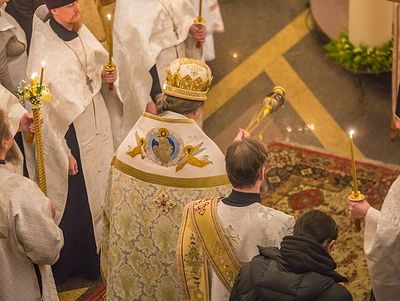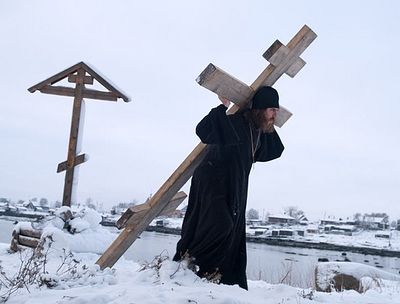On the way home from services last Sunday, I passed a church whose colorful banner proclaimed their April 16 Easter celebration. This surprised and perturbed me, though not for reasons you might think.
It had nothing to do with chagrin over such early advertising, but with the sad realization that this service, when it comes, will be a stand-alone event devoid of context. Coming from nowhere, it will disappear as quickly. No Palm Sunday to speak of; no Good Friday. Just an ad hoc celebration of Jesus being alive again (note in passing that he was dead, but why bother with that?).
Such isolated celebration of Christ's Resurrection would've been inconceivable to early Christians, for whom at a minimum this event was part of a three-day cycle that included Jesus' crucifixion and death, and his lying in the tomb.
As time passed, this three-day Pascha (the early name for Easter, from the Hebrew Pesach or "Passover") was expanded to an entire week of anticipation, following the narrative of Christ's last days in Jerusalem. By the fourth century, "Holy Week" was in turn preceded by a 40-day period of fasting, alms and prayer known as Lent.
Such development of a liturgical calendar was based on an understanding of the innate relationship between anticipation and fulfillment. There can be no true feast without a fast. At least, that's how Christians of an earlier age saw it.
But now we know better. With an enlightened, progressive, more convenient approach, we push the easy button.
Years ago, at the first church I attended (when I set out to explore Christianity as a teenager), the closest thing to Palm Sunday -- or any anticipation of Easter -- was an announcement that "next Sunday, we'll be celebrating Easter."
The idea of Holy Week, even Good Friday, would've been rejected as "too Catholic." And holding Palms in church? Forget it! Again, none of that Catholic stuff.
Such is Christianity stripped of ornament and beauty: functional, utilitarian, boring -- the fruit of centuries of slow self-deletion. As I passed that church and its sign, I wished they could know how much more there is than an isolated holy day.
This feeling was inspired largely by having just entered Orthodox Lent, inaugurated by a service called Forgiveness Vespers. After the morning Liturgy, we'd observed the ancient rite of mutual reconciliation, bowing to each other and kissing each other three times on the cheek, while asking forgiveness and committing to grant it. For Orthodox Christians, such reconciliation is a necessary corollary of our reconciliation with God in Christ.
And that's just the beginning of all that Lent has in store.
Rather than a sign announcing what's ahead, ancient Christianity takes us on a journey there. I'd love for contemporary Christians to experience that journey.




